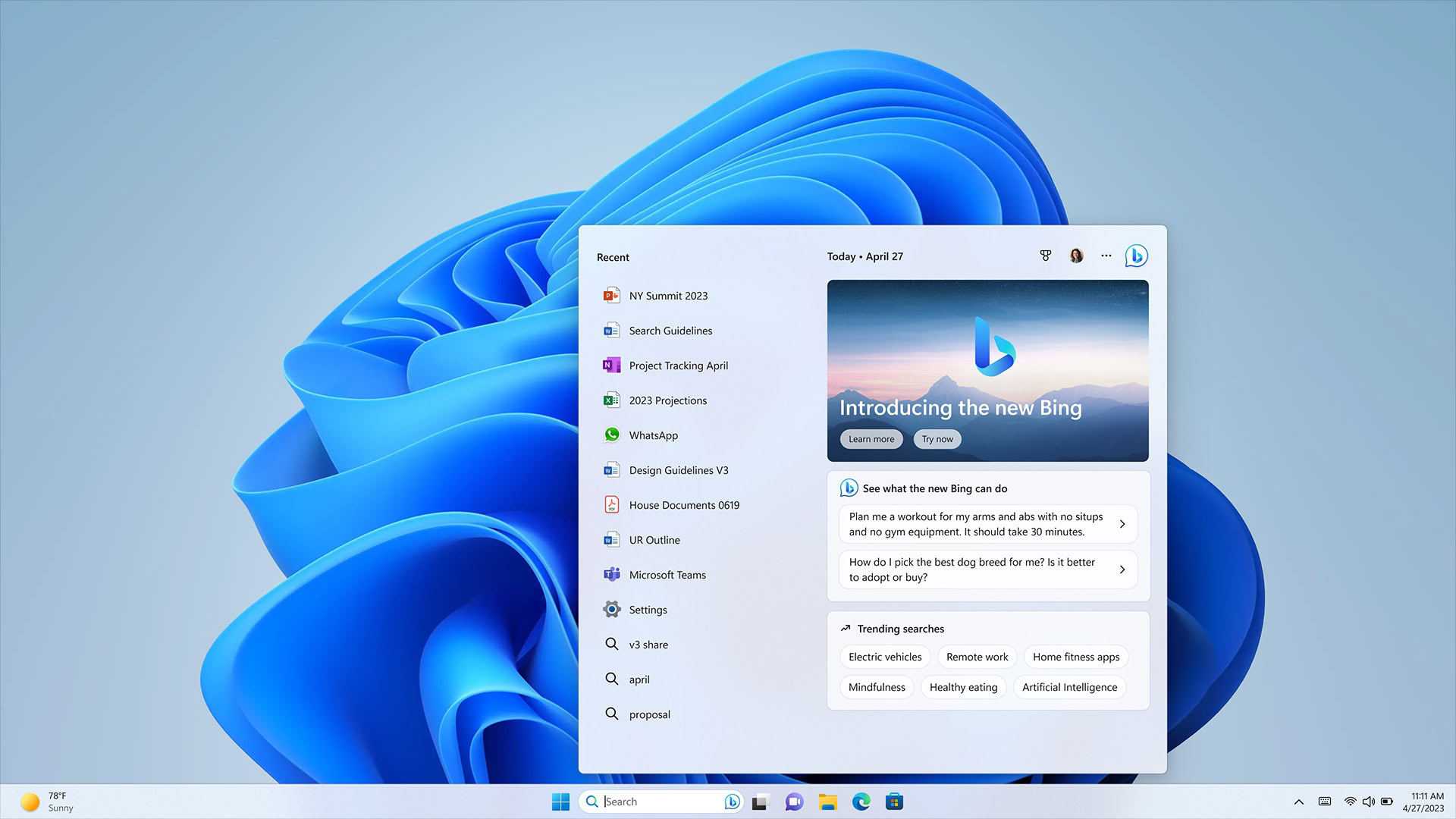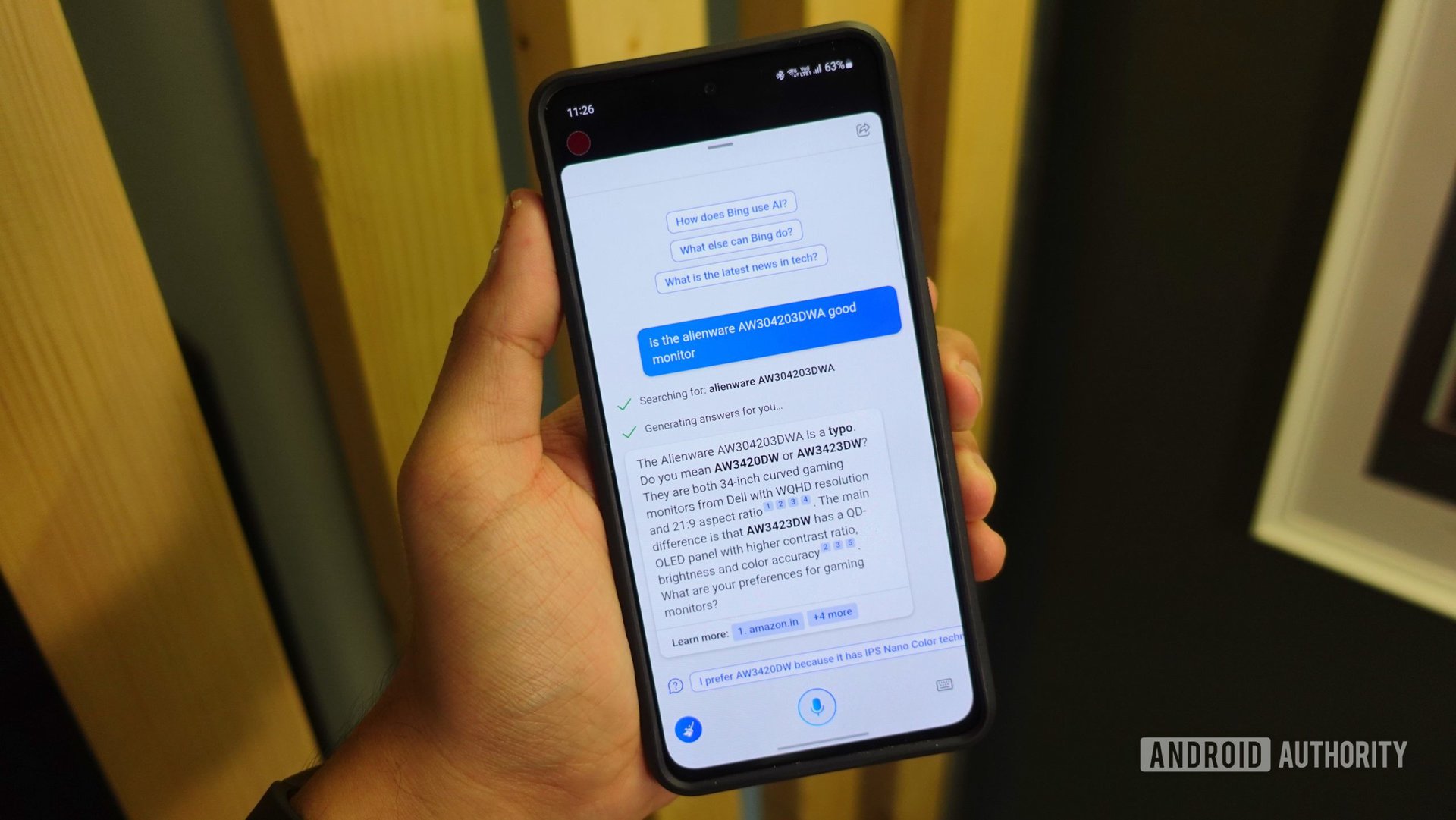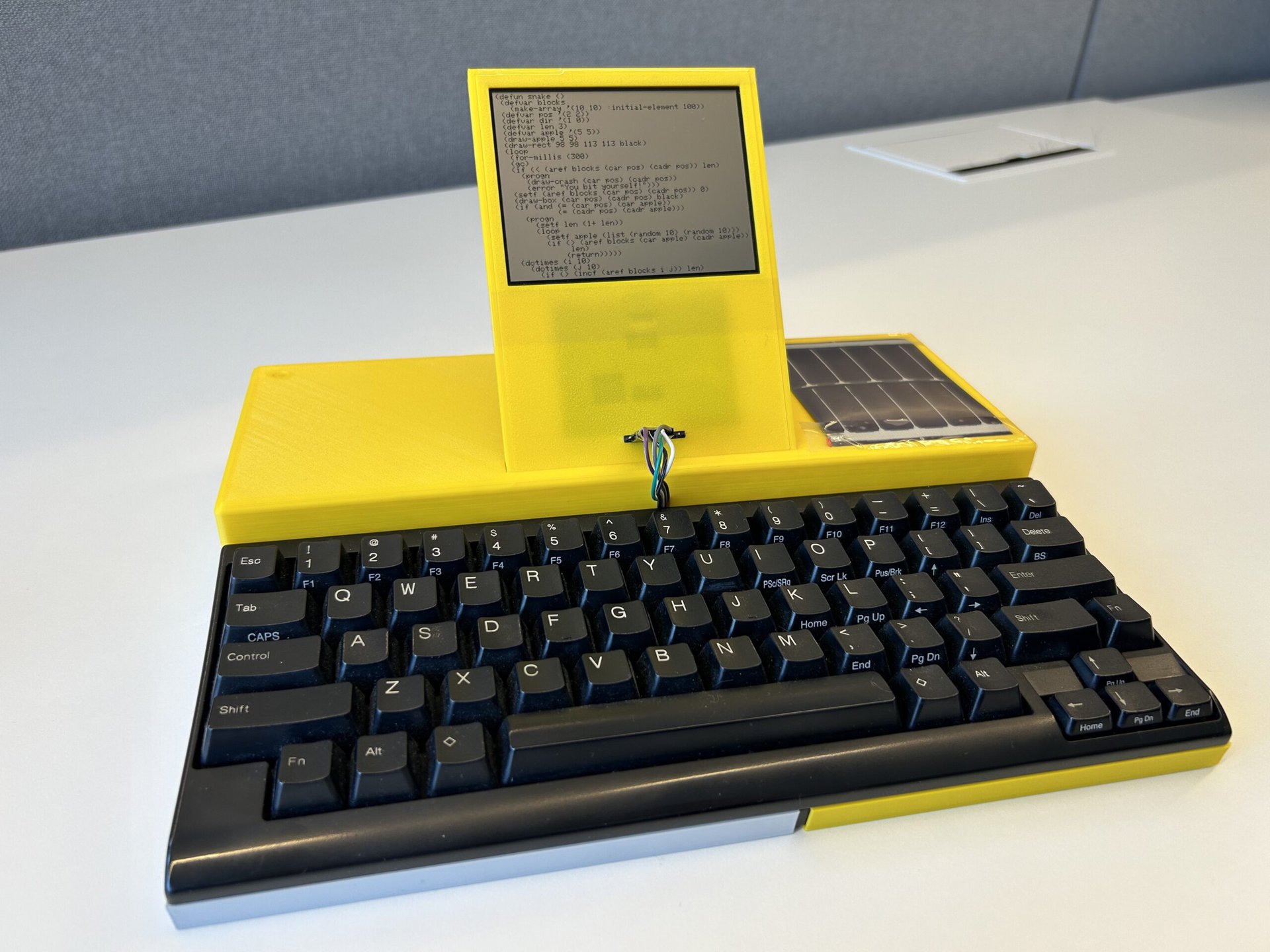Affiliate links on Android Authority may earn us a commission. Learn more.
Daily Authority: 🔎 The fall and rise of Bing (?)

🙋♂️ Hi! I’m gonna be watching my dad compete in the annual 109 km (~68 mile) Cape Town Cycle Tour. He’s been doing it for roughly 20 years, but I haven’t stood on the roadside to watch him since I was a teenager. Anyway, on with the newsletter!
Bing’s major landmark

Microsoft stole Google’s thunder last month when it announced Bing Chat. This is an AI-powered chatbot in the same vein as ChatGPT, albeit for Microsoft’s search engine. Now, it turns out that Bing Chat and other factors are having an effect on Bing’s growth.
Bing’s explosive user growth
- Microsoft executive Yusuf Mehdi announced that Bing now has 100 million active daily users.
- This is the first time Microsoft’s search engine has crossed this mark.
- “This is a surprisingly notable figure, and yet we are fully aware we remain a small, low, single digit share player,” he added.
- Mehdi says Bing crossed this threshold “with a little bit of a boost from the million+ new Bing preview users.”
- He also noted that roughly one-third of the “millions” of active Bing preview users are new to the service.
- Mehdi also claimed a six-fold increase in daily active users on mobile, in the wake of the new Bing app.
- However, Microsoft is citing two big reasons for Bing’s overall growth.
- The first reason is the Edge browser‘s continued performance, recording seven quarters of growth.
- In fact, we praised Edge in a review back in 2019. I also use the browser because I don’t like having all my eggs in the Google basket.
- The company is also pointing to Bing’s “all-time high” search quality due to a new model.
- It doesn’t hurt that Microsoft effectively pays you to use Bing.
A viable Google alternative? Bing it on!
- There’s no official word on Google’s daily active users, but Bing’s new figures undoubtedly represent a tiny fraction of Google’s numbers.
- It also seems wildly optimistic to suggest Bing will threaten Google’s top position in the near future.
- Microsoft’s search engine has been around since 2009, and it’s long had a reputation as a Wish version of Google.
- In fact, one of the few cited reasons to use Bing was for adult content.
- But Bing Chat is clearly positioning Microsoft as a technological leader, and this major AI upgrade is evidently translating into some user growth.
- This turn of events led Google to unveil an AI-powered chatbot of its own, dubbed Bard.
- This reveal didn’t go well at the time owing to an incorrect answer.
- It’s going to take more than a flub to hold Google back though, and the company can afford to take a little time to put together a more cohesive, polished response.
- But between a revitalized Bing and rumors of Apple quietly working on a search engine, this is the most vulnerable Google has looked in the search space.
Roundup
🔋 Samsung Galaxy M14 5G launched: A budget battery beast (Android Authority).
🔒 Google One makes a premium feature available to all, adds new layer of security (Android Authority).
📱 Second Android 14 developer preview launches: Here’s what’s new (Android Authority).
🎮 Valve says a true Steam Deck successor is a few years away: Although they’re referring to a model with a major horsepower bump. What does that mean for a variant with improved battery life? (Rock Paper Shotgun)
💩 Android 14 is hiding an emoji wallpaper maker for Pixels (Android Authority).
🎵 And staying with Spotify, we’ve got a poll asking you how you listen to music on the service: Do you stick with specific playlists/tracks or do you use recommendations? (Android Authority).
🧑🦼 Musk apologizes for mocking and firing Twitter exec with muscular dystrophy (Ars Technica).
🖼️ Wallpaper Wednesday is here: More wallpapers submitted by AA colleagues and readers (Android Authority).
Thursday Thing

Laptop battery life is usually measured in hours, but a Norwegian software developer has created a “laptop” with battery life measured in years (h/t: Hacker News and Hackster). Well, it looks more like an iPod attached to a keyboard.
Andreas Eriksen created the so-called PotatoP, which is a quirky pseudo-laptop programmed in the super-old LISP language. The PotatoP is powered by a single-core Arm Cortex-M4F CPU clocked at a screaming 96MHz, while also offering Bluetooth 5.0 connectivity. But you’ve also got a 4.4-inch “memory” display here. Naturally, it lacks a backlight.
The PotatoP is powered by a 1.2Ah lithium battery and has a solar cell too, with Eriksen claiming up to two years of battery life depending on ambient light conditions. You can check out the YouTube video for a better idea of how it all works.
Have a great day!
Hadlee Simons, Editor